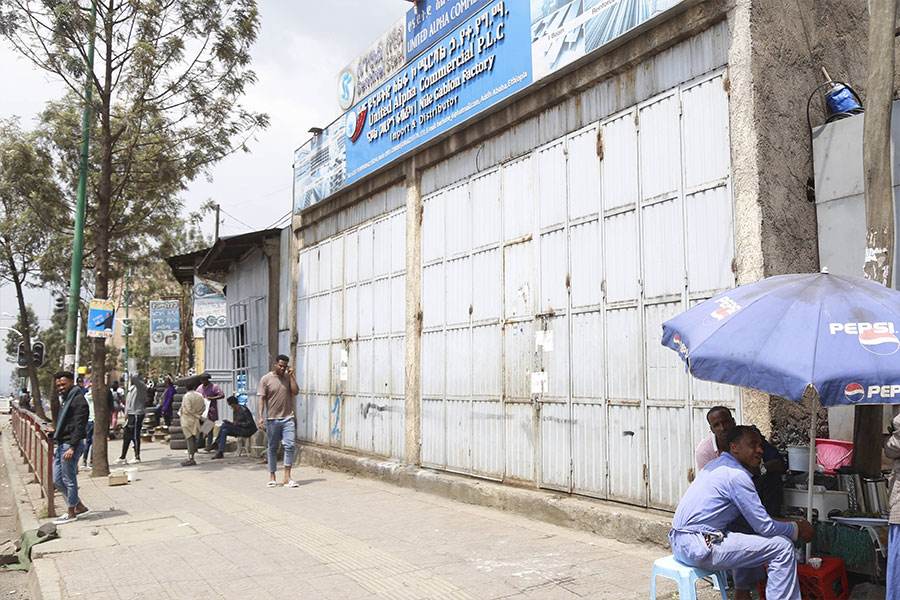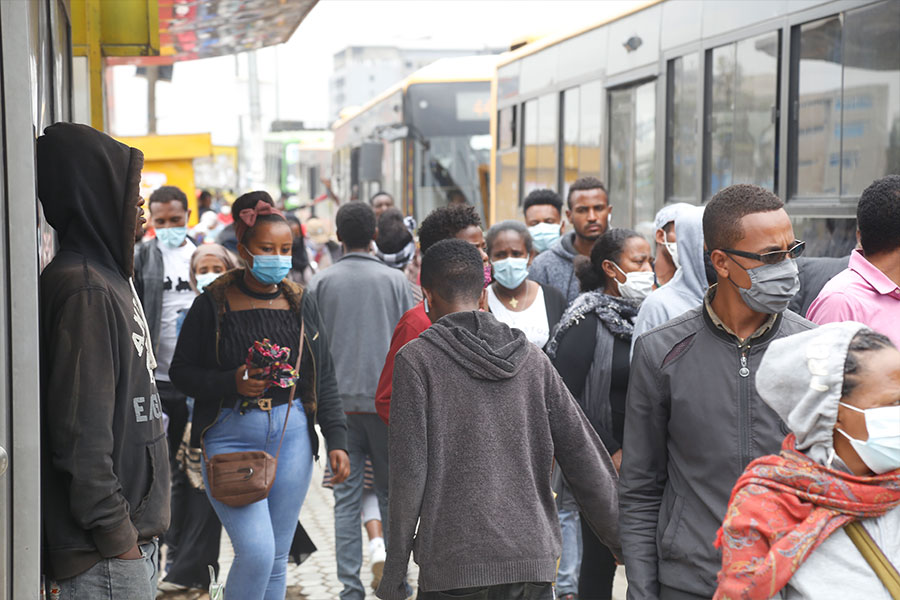
The Ethiopian Theatre Professionals’ Association successfully organised Africa’s first international performing arts festival and conference in 2015 at the Addis Abeba University’s College of Visual & Performing Arts. Then, National Theater and the Sundance Institute East Africa Theater Program graduates showed upbeat and exciting participation.
The performances from 11 countries created a space where the East African region’s performers, academics and cultures met and exchanged experiences on critical performing arts issues. The same experience epitomised the opportunities drawn from joining hands. The need for a strong association that offers professionals opportunities to network and learn from one another was emphasised.
One of the days last week, I noticed an announcement that the monthly debate on the arts would be held that evening at Hager Fikir Theatre on John Melly St. I picked up my phone to cancel a meet-up with a close relative; instead, my apology was accepted. He happily agreed to join me in attending the event.
Arriving at Arada’s historical theatre place, we were nostalgic. The thought of attending a get-together of thrilling players, men and women behind superb productions, was bracing. It was as spontaneously sitting by their side and diving through their minds as they spoke.
The theme was on the crux played by association members related to theatre and performance as well as on how to boost memberships. Identifying and breaking the shell that was excepting the professionals from sitting together, and coming up with a vibrant association, was up for debate. Failing to come out of a multi-layered reality to form a strong lobby group was hard to imagine.
Coming from people who envision plays, perform and give life to stories on the stage through discipline makes it more awkward. After all, these were individuals with a sparkling sense of humour and abilities, with much to give to other professionals.
A young woman stirred the debate and opened the stage for discussions, manifesting excellent potential teamwork through tremendous confidence and public speaking skills.
It was an exciting opportunity to sit in a gathering where creative thinking is a trademark, with the tools of problem-solving. The benefits of stage performance through the virtues of vocal warm-ups and exercises that muscle the voice as an effective medium can be seen in performers and key industry players. Listening to their performative presence and expressive actions was thrilling.
Heated discussions between the seniors drawing performances on the stage revealed the rich and delightful history of the Ethiopian theatre industry. A chronological series of perspectives and observations about evolving social and political contexts were articulated with fascinating and irresistible stories that gave participants compelling insights. Tributes were made to the industry’s forebears for handing over an audience with passionate concerns that created unique individual talents and stage hits.
I was a bit worried as the debate started with the blame game about the why-it is-so, alternately and squarely played by members versus former and current leaders of the Ethiopian Theatre Professionals Association. Yet, it ended with an amiable spirit. It was agreed that the debate needs to be continued, emphasising insights and finding ways to learn from other professional associations. Attempts have been made to establish, maintain and execute art policies ensuring standards and knowledge development.
But after a review, it was agreed that efforts on this aspect be strengthened.
As I was heading back, I considered the continued need for engagement between the arts and society. The industry needs support. It looks like we are coming out from a civil war that had the potential to get prolonged. It is time that wounds need healing and bridges mended. Art is an excellent way to do that.
This manifests the need for a continued engagement between the state and society. It is only then that theatre and performance bring down the house, with performers so good that the hall seems to vibrate from all the applause received as if the building would collapse.
Like copyright, “the engine of free expression” provides a strong economic incentive for much of the performing arts and the current controversies, such as the mixing and copying culture. Meanwhile, debates on the arts and professional associations need to continue.
PUBLISHED ON
Nov 19,2022 [ VOL
23 , NO
1177]


Radar | Feb 08,2020

Agenda | Oct 09,2021

News Analysis | Aug 07,2021

Agenda | May 29,2021

Agenda | Feb 27,2021

Featured | Sep 10,2021

Fortune News | Feb 09,2019

Agenda | Mar 14,2020

Radar | Apr 04,2020

Life Matters | Jun 22,2019

Dec 22 , 2024 . By TIZITA SHEWAFERAW
Charged with transforming colossal state-owned enterprises into modern and competitiv...

Aug 18 , 2024 . By AKSAH ITALO
Although predictable Yonas Zerihun's job in the ride-hailing service is not immune to...

Jul 28 , 2024 . By TIZITA SHEWAFERAW
Unhabitual, perhaps too many, Samuel Gebreyohannes, 38, used to occasionally enjoy a couple of beers at breakfast. However, he recently swit...

Jul 13 , 2024 . By AKSAH ITALO
Investors who rely on tractors, trucks, and field vehicles for commuting, transporting commodities, and f...

Jun 28 , 2025
Meseret Damtie, the assertive auditor general, has never been shy about naming names...

Jun 21 , 2025
A well-worn adage says, “Budget is not destiny, but it is direction.” Examining t...

Jun 14 , 2025
Yet again, the Horn of Africa is bracing for trouble. A region already frayed by wars...

Jun 7 , 2025
Few promises shine brighter in Addis Abeba than the pledge of a roof for every family...